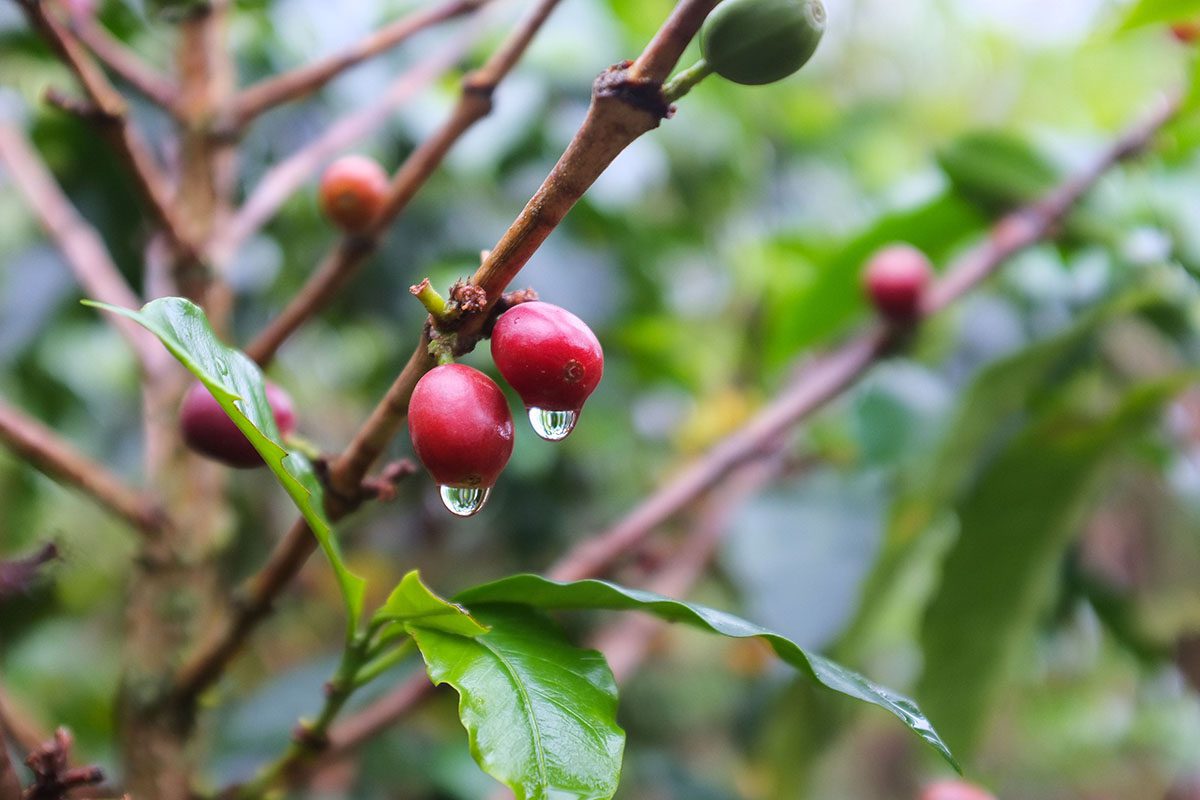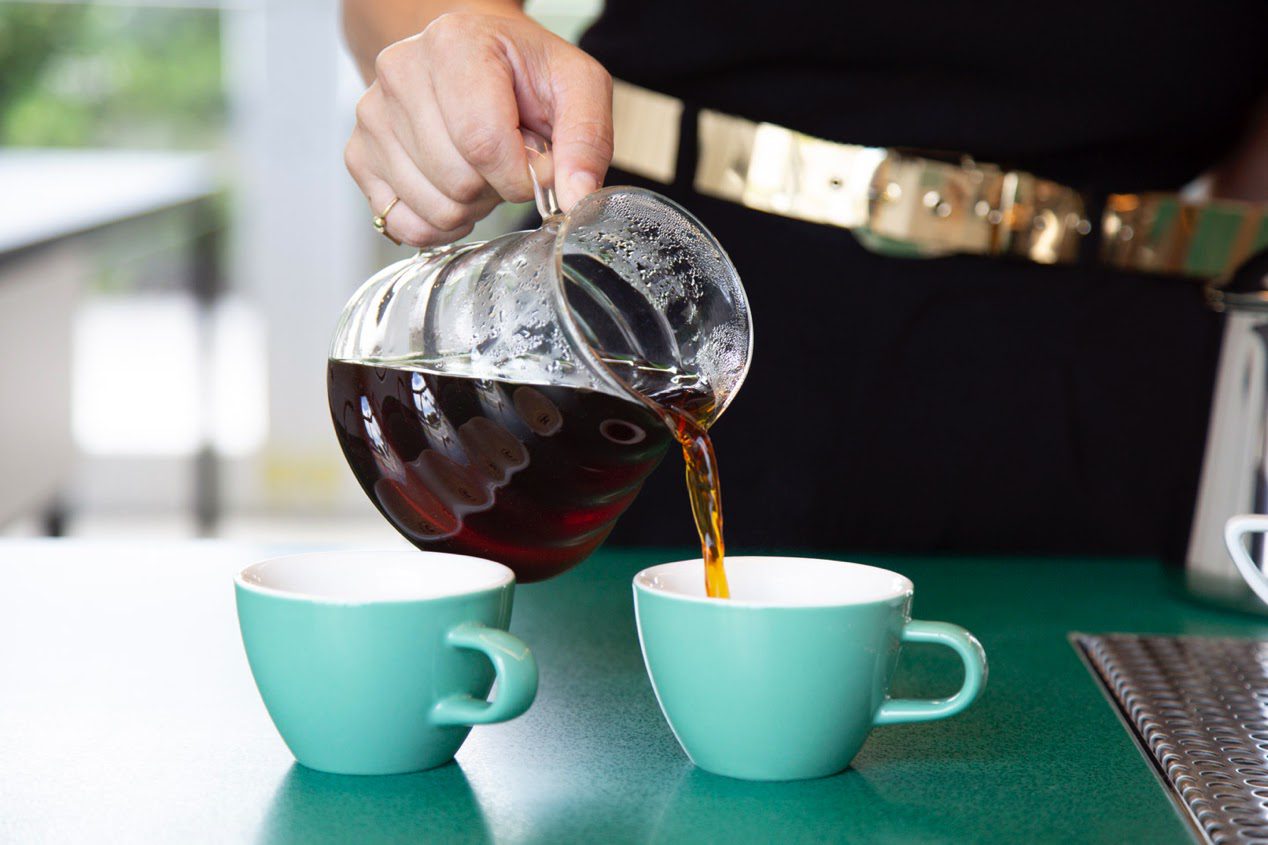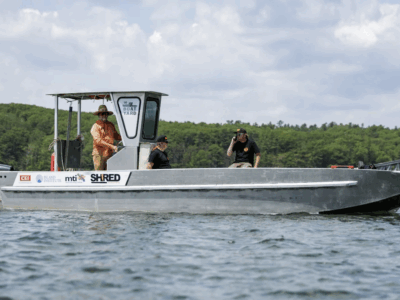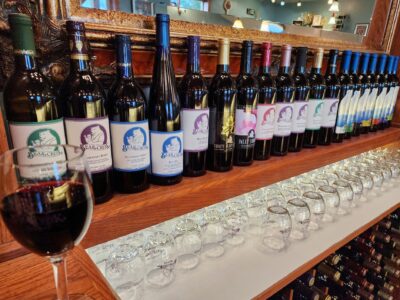After 26 years in business, Durham, North Carolina-based, Counter Culture Coffee could be considered a dinosaur by third-wave coffee standards, but there’s nothing old-fashioned about the way they do business. The “relentless pursuit of coffee perfection” has led the folks at Counter Culture down a path to giving back, supporting education, and funding wide-reaching environmental initiatives. A large part of their mission is to improve the lives of the people in their community. With cafes and training centers across the country, as well as international trade partners around the globe, improving the lives of many is no small task. Fortunately, the folks at Counter Culture have plenty of caffeine to keep them focused on this goal.
The company, now the gold-standard for their fans, started out as the shared dream of Brett Smith and Fred Houk. While Brett was attending business school at UNC in 1995, the duo roasted and sold their first bag of coffee to Pop’s Trattoria, a Durham, North Carolina staple. Shortly afterward, the two offered some of the country’s first shade-grown coffee, which is grown in a way that promotes the health of the coffee farm’s ecology. In 2002, Counter Culture became the first organic coffee roaster in North Carolina through the National Organic Program. The next year, the company inscribed their mission on a piece of yellow legal paper, stamped it, and signed it. Since then, the organization has been focused on social, environmental, and fiscal sustainability.
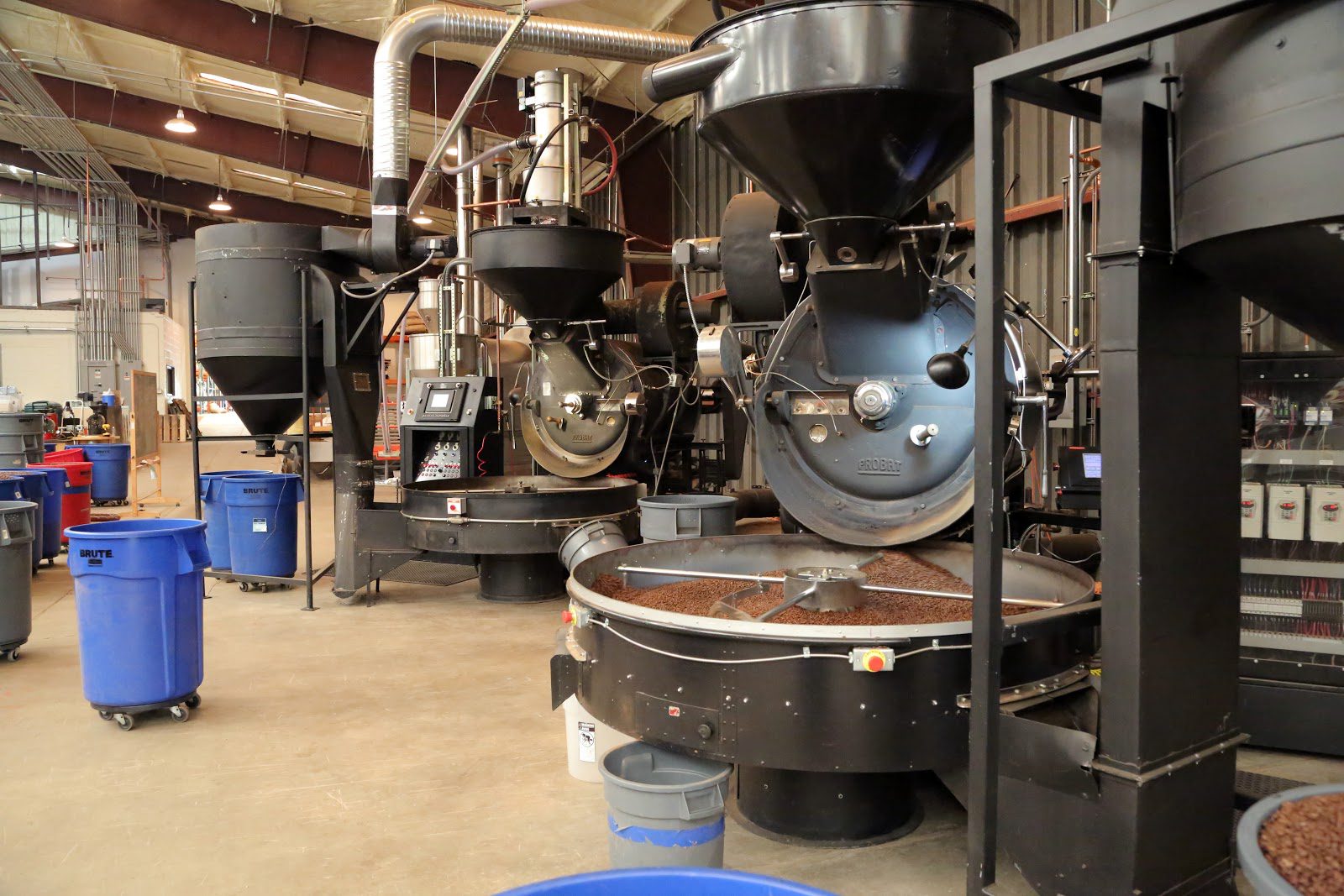
The folks at Counter Culture are constantly looking to eliminate waste, and they’ve come up with some innovative and impactful solutions. To ensure not a single bean goes to waste, they re-roast immature or unripe beans otherwise discarded and then donate the re-roasted beans to food banks and homeless shelters. Cameron Heath, Eastern Roasting Supervisor of Counter Culture Coffee, is working with a local designer to create “free shoes for the houseless” out of the burlap sacks unroasted coffee arrives in. “If you don’t have shoes, come get some free shoes and some free coffee, and what other service can we provide for you?” He laughed during an interview with The Business Download. “We’re finding interesting ways to reuse our products to help people.” In Emeryville, at the Counter Culture’s West Coast roastery, farmers collect the extra burlap to use as a barrier against weeds and insects.
Another byproduct of coffee transportation is large plastic bags in the lining of burlap sacks that help keep out moisture. While this plastic is technically recyclable, most municipalities don’t have the capacity to recycle it. Rather than let this waste end up in a landfill, the folks at Counter Culture bought a baler to compress the plastic so it can be transported to a proper recycling center. This initiative alone kept 14,000 lbs of plastic out of the landfill in 2019. Over the past 10 years, Counter Culture reduced their emissions by 43 percent for every 1,000 lbs of coffee produced, according to their 2019 Transparency Report. Even with these successes, they continue to look forward and expand their work towards environmental sustainability. “I’d love to see us expand ways that we recycle or upcycle more of the waste to produce enough value streams,” Katie Carguilo, Counter Culture Coffee’s Coffee Manager, shared in an interview. “We need to get beyond just things that look good, and make us feel good and realize how this is actually happening in the world.”
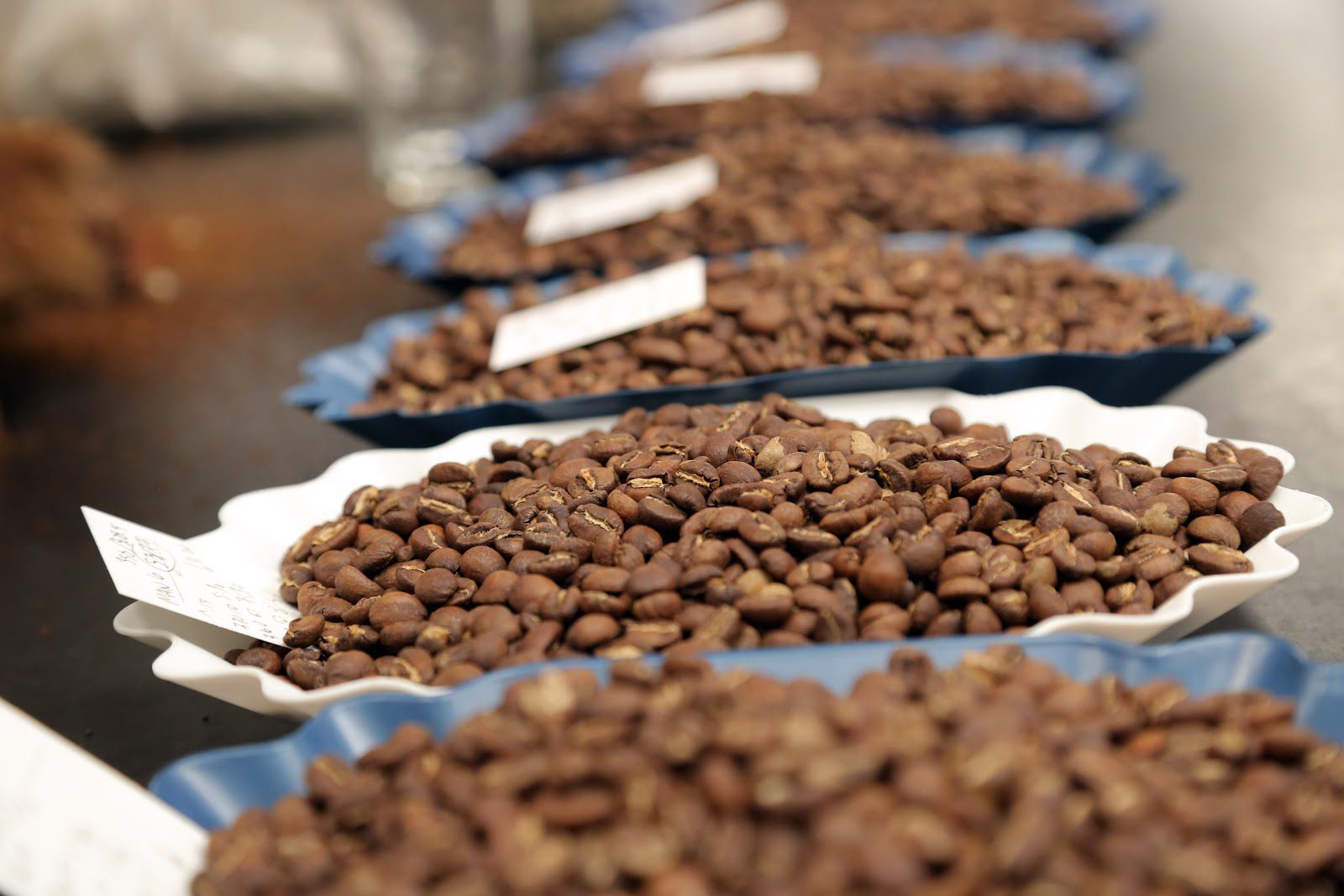
Since sustainability means more than just environmentally friendly practices, the folks at Counter Culture stepped up to the challenge of tackling social sustainability in the workplace and at home. By working with a local North Carolina company Intersections, Counter Culture began a conversation on how to incorporate more diversity, equity, and inclusion (DEI) into the workplace. Through a lot of difficult, hopeful conversations, the staff continues to learn about ways they can be more inclusive. When Zekarias Thompson stepped into the role of Diversity, Equity, and Inclusion Specialist, he made it his mission to weave these values into the fabric of Counter Culture. Zekarias said, “How do we really infuse the principles of creating equity, really honoring our diversity, and being inclusive in our dialogue into the structure of the organization.” One of his latest projects involved a company-sponsored reading group of My Grandmother’s Hands: Racialized Trauma and the Pathway to Mending Our Hearts and Bodies by Resmaa Menakem. “Over the course of four months or so, we read this book and came together every week in different groups and talked about our experience and shared space with the aim of creating more space for us to have these conversations.”
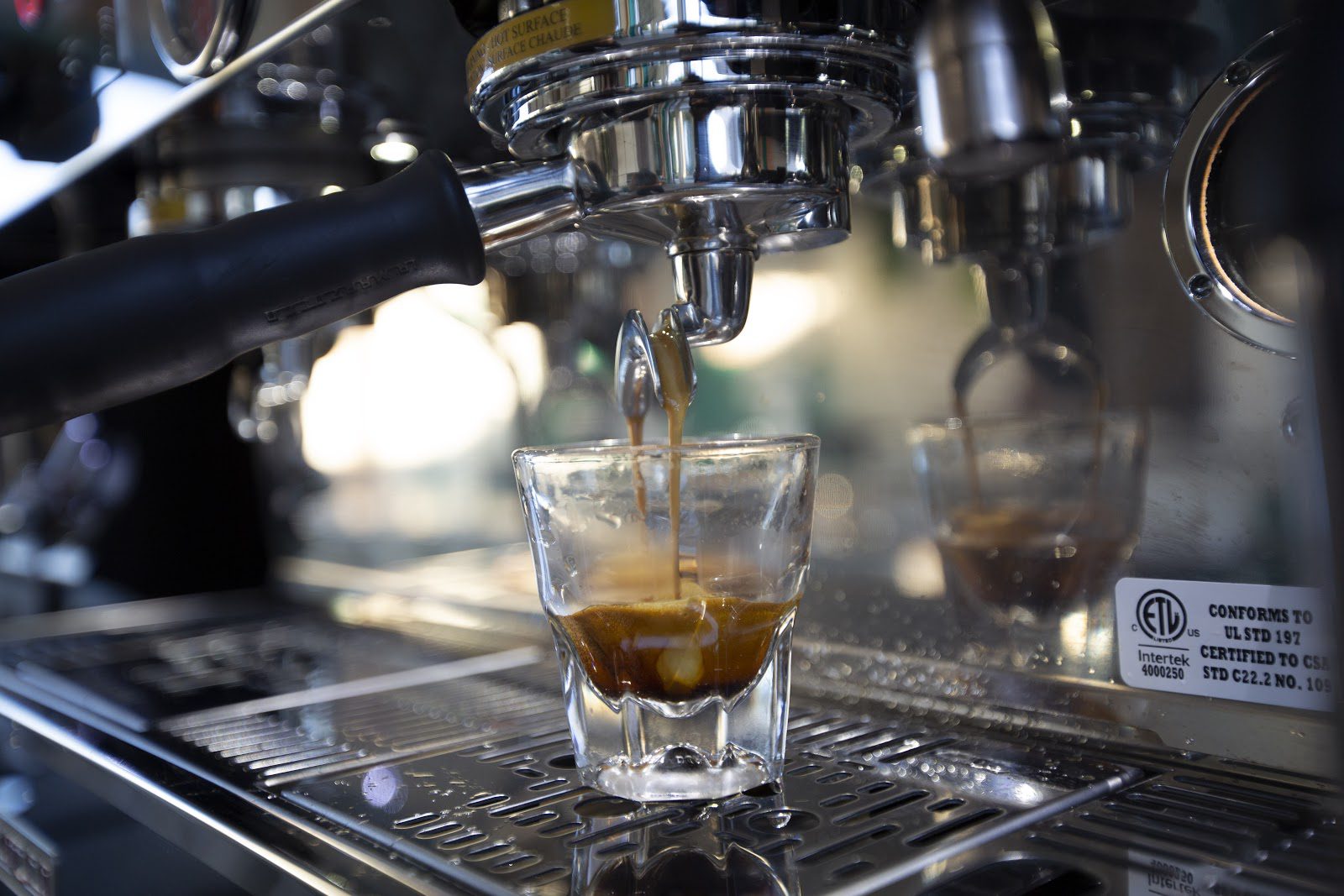
Since coffee is a commodity crop that comes from sources across the globe, the people at Counter Culture do their best to ensure the individuals that farm the coffee are treated fairly. In addition to paying far above the Fair Trade Minimum, Counter Culture dedicates $0.01 from each pound of coffee sold to a financial grant fund for their coffee producers. Officially named Seeds, coffee producers apply for these grants individually. As a result, they’ve seen the money used to fund teacher’s salaries and transportation in Nicaragua, education to fight climate change in Kenya, and commercial beehive construction to promote pollination in Colombia. “A thing that I love about the program is that it’s not Counter Culture looking at a coffee-producing community and saying ‘here’s what you need and we’re going to give it to you,’ it’s coffee-producing communities making that decision themselves and then bringing forth those proposals,” Katie shared. “ In a way, we have a little bit more trust in that the people know what they need and don’t need to prove it to us after the fact.”
At the end of the day, or more likely, first thing in the morning, most people just want to know what makes coffee good? “The intention behind the coffee is what makes it good –– the care behind it makes it good,” Cameron shared. “Did my girlfriend make it for me? Did she try? It could be over-extracted, it could just taste like concentration, but she cared so much that she made me a cup of coffee.” Coffee is as complex as wine, as mysterious as the ocean, and as fragile as the polar ice caps. If you want to make good coffee, think about the intention. Think about the people who grew the coffee to provide for their communities, the care behind the people who roasted it to perfection, and the joy of sharing a cup of coffee with the people you love. Then, you can truly make good coffee.
